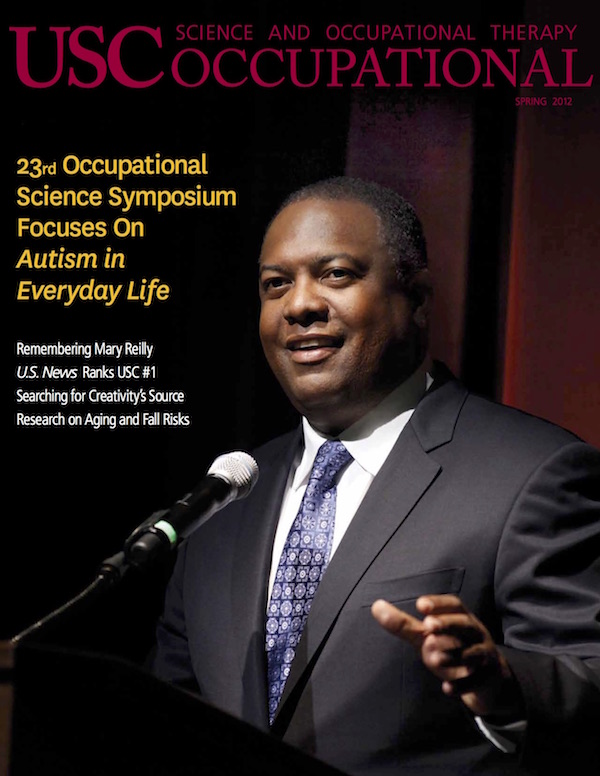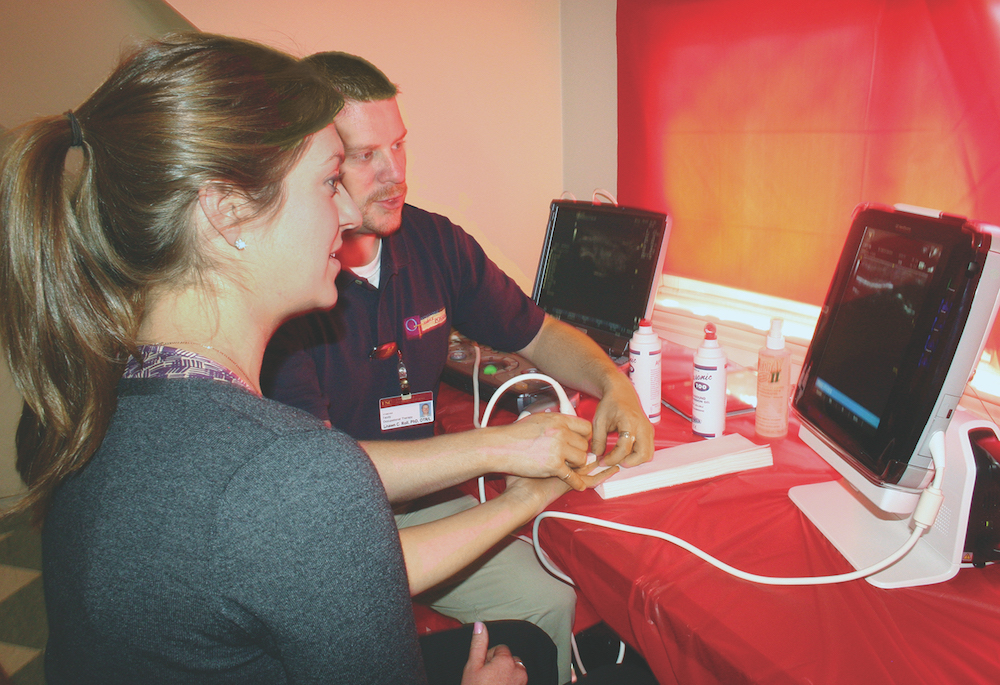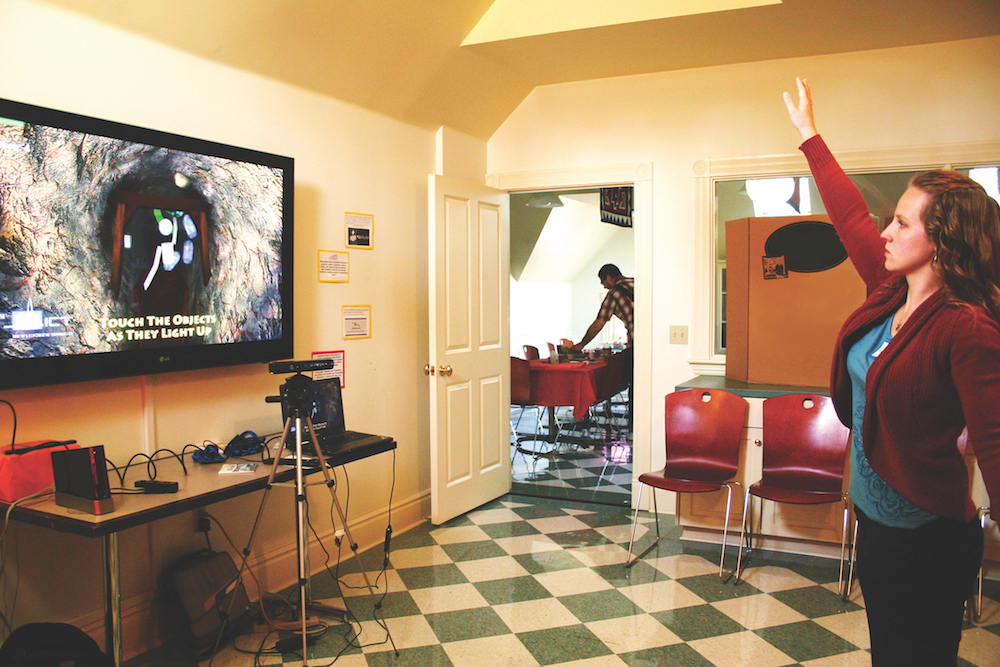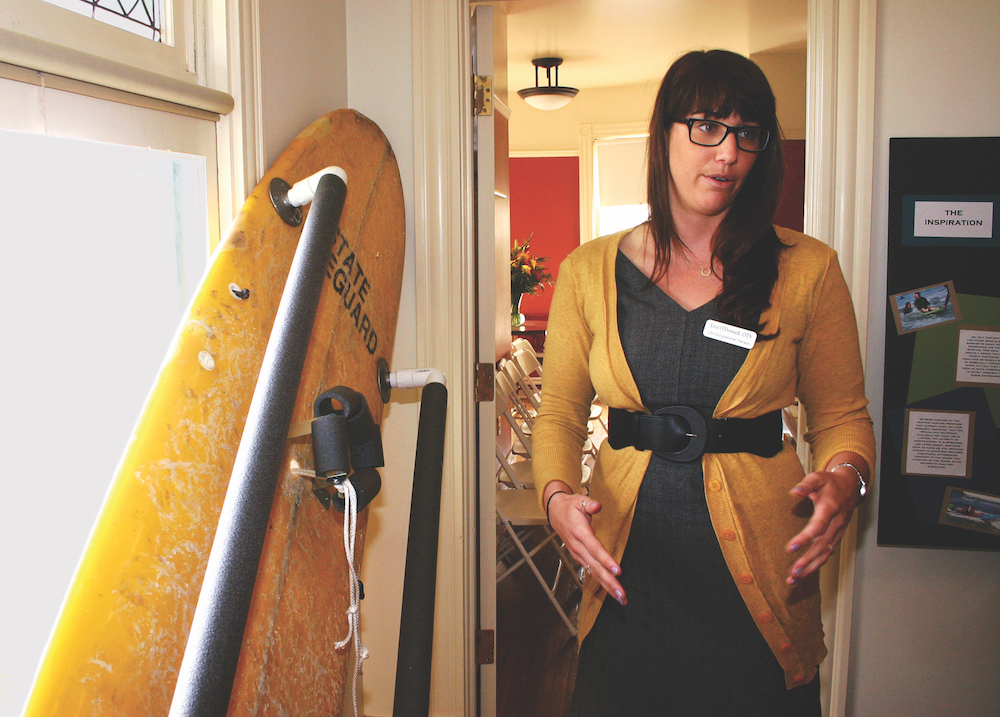Student-Run Extravaganza Focuses on Technology in All Its Forms
At the March 24 Occupational Extravaganza, students, faculty, and staff, along with medical professionals and students from the Keck School of Medicine of USC and the USC Viterbi School of Engineering, enjoyed learning from innovative speakers about the role of technologies in occupation-based projects. The annual event, now in its fifth year, was organized by the USC chapter of Pi Theta Epsilon, the national occupational therapy honor society, and was hosted at the Center for Occupation and Lifestyle Redesign®.
By Kimberly Perring and Chelsea Robinson
Kathy Gross, MA, OTR/L, Chief of Occupational Therapy at the Keck Hospital of USC and USC Norris Cancer Hospital, opened the event by speaking about the hospitals’ ongoing transition to electronic medical records. Her presentation excited many in the audience.
Master’s student David Willwerth commented that electronic medical records “will allow us to operate more efficiently and will put all health care providers on the same page when it comes to understanding how to provide the best care for our patients.”
The second lecture featured Brian Prestwich, MD, Medical Director of the USC Family Medical Center, and Katie Jordan, OTD, OTR/L, Associate Chair of OT Clinical Services and Director of OT and Speech Therapy at Keck Hospital of USC and USC Norris Cancer Hospital. Prestwich and Jordan discussed the emerging role of occupational therapy in primary care settings accelerated by emerging trends in health care regulation and delivery.
Community clinicians also shared their expertise. Kathleen Shanfield, MS, OTR/L, CVE, ATP, occupational therapist at the Center for Applied Rehabilitation Technology at Rancho Los Amigos National Rehabilitation Center, highlighted the potential of tablet computing technologies to extend the capabilities of a person with limited motor control or communication skills. Julia Maclay, OTR/L, occupational therapist at the Veterans Affairs Long Beach Healthcare System, inspired the audience with videos and stories of military veterans participating in adapted sports. Her husband also shared his firsthand experience with adapted scuba diving.
Occupational therapy graduate student Heather How (L) watches the monitor as division assistant professor Shawn Roll (R) demonstrates diagnostic ultrasonography | Photo by Chelsea Robinson
Between presentations attendees examined entries in this year’s Adaptive Equipment Contest. The contest paired teams of biomedical engineering students from the USC Viterbi School of Engineering with occupational therapy students to develop prototypes of adaptive equipment. Prototypes were judged according to their originality, creativity, functionality, applicability, usability, and efficiency.
Adjunct assistant professor of clinical occupational therapy Rachel Proffitt, who is appointed at the USC Institute of Creative Technologies, exhibits a rehabilitation-based interactive gaming tool | Photo by Chelsea Robinson
A chin-controlled surfboard steering mechanism was designed by occupational therapy student Erin O’Donnell and biomedical engineering student Ashley McNutt to help people with varying levels of paralysis and muscle spasticity better maneuver surfboards in the water and on waves. Occupational therapy student Deborah Graves and biomedical engineering student Eric Diaz demonstrated their sensory library biofeedback apps program for children with communication, self-regulatory, cognitive, and sensory needs. Eventual contest winners occupational therapy student Heather Lander and biomedical engineering student Monica Stern showcased an adaptive nail polish applicator that enables anyone to paint their fingernails using only one hand.
Occupational therapy graduate student Erin O’Donnell explains how her adapted surfboard steering mechanism works | Photo by Chelsea Robinson
“I’m thrilled with the success of the event,” stated Pi Theta Epsilon co-president Monique Wolkoff. “It truly showcased the emerging avenues of growth that technology and OT’s innovative spirit have opened for our profession. I’m excited to see how this event expands in years to come and I hope that the new collaboration between our Division and the Viterbi School of Engineering becomes a yearly tradition!”
⋯









